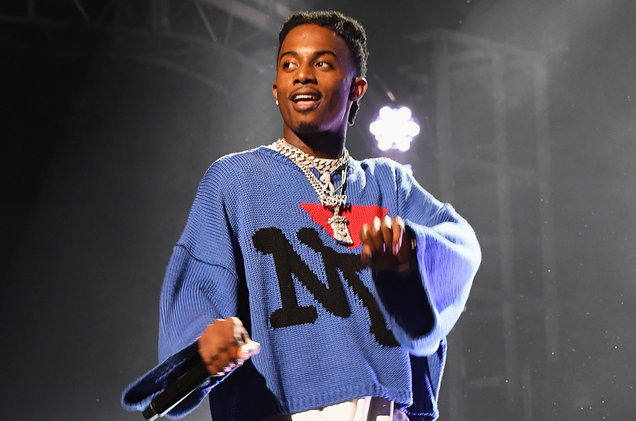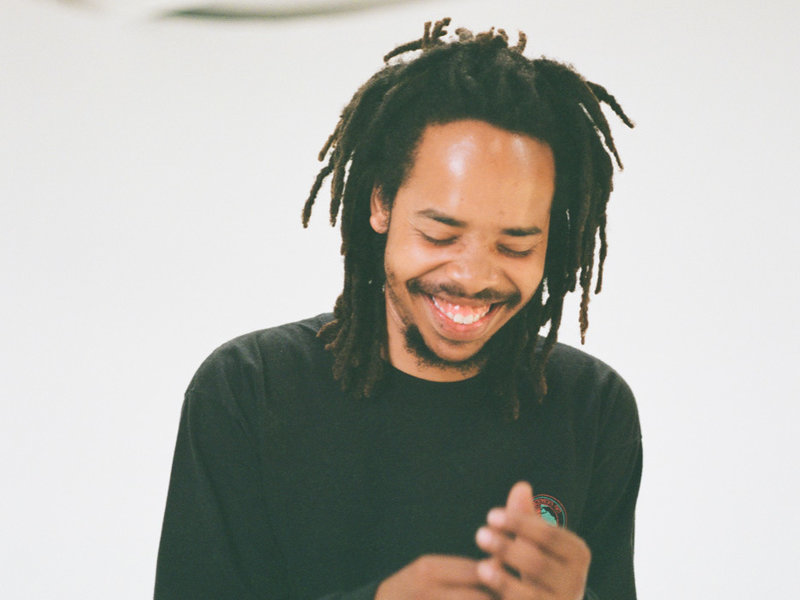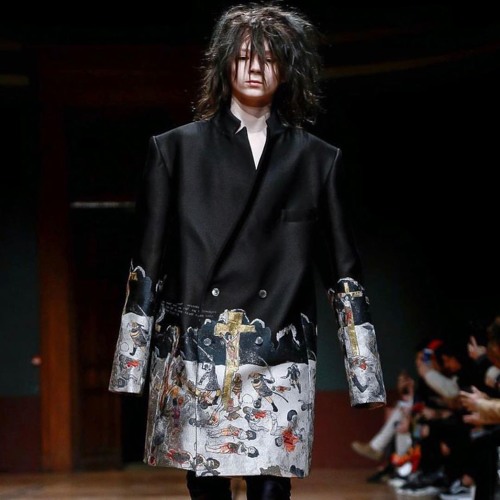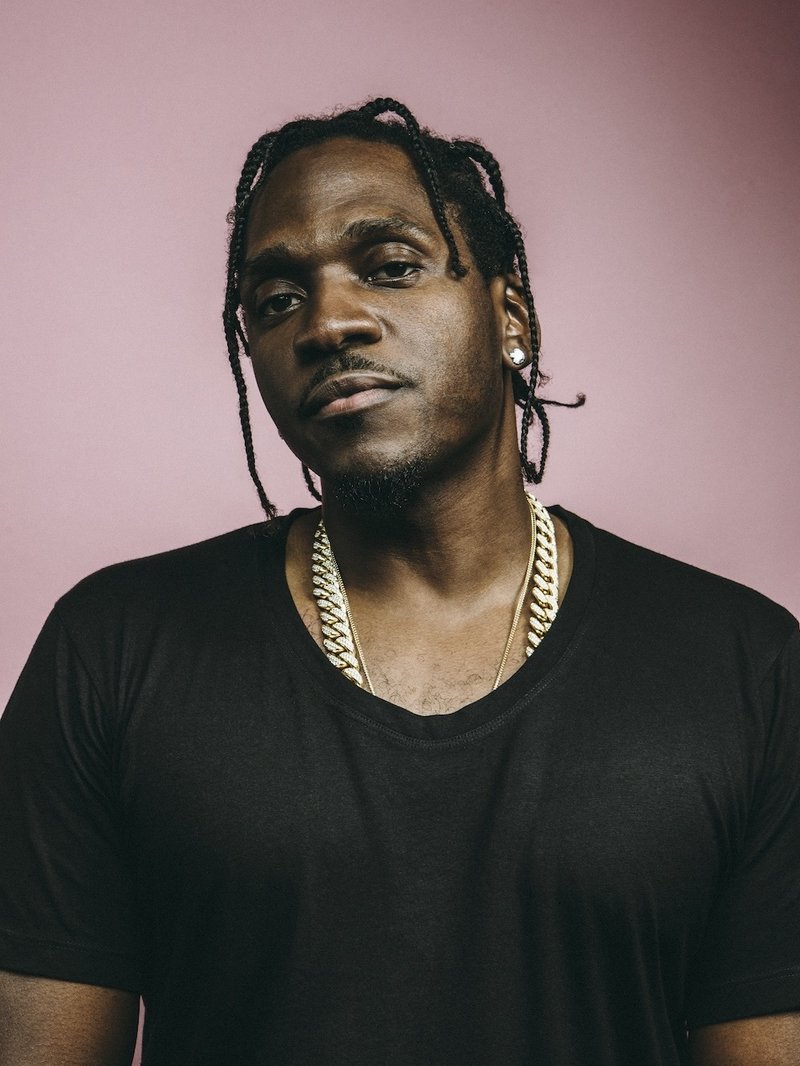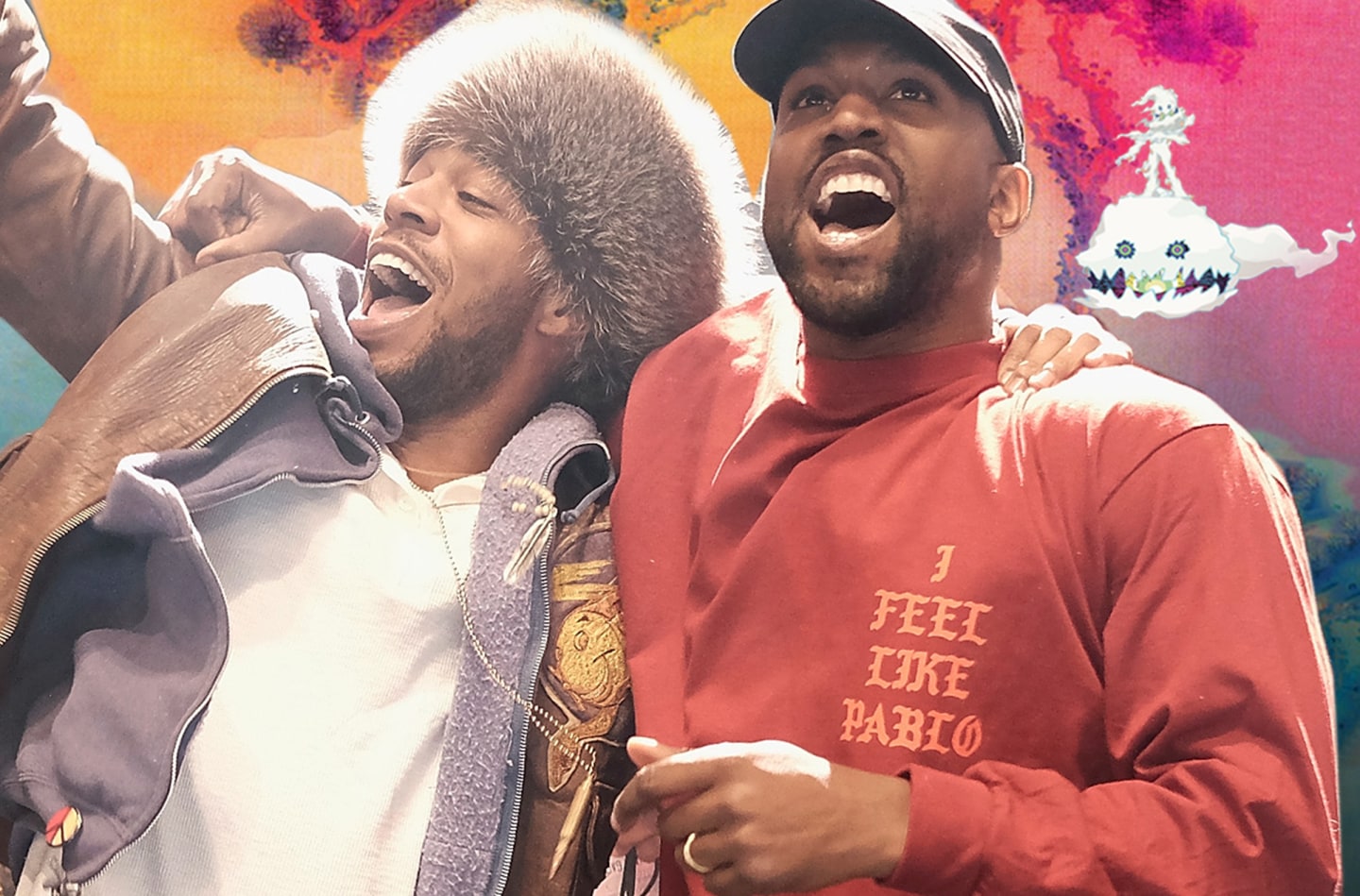“I’m a mudboy. I came from the mud, oozed out the concrete. I’m not a rose. I’m a mudboy, I came from nothin.”
-Sheck Wes
The first words we hear out of Sheck’s mouth on his debut album, “MUDBOY,” is “BITCH!” Because what else would be more fitting? A couple songs later on “Gmail” he gives an alluring explanation of why he says Bitch so much, “It’s the only word where I could feel and hear all my anger.” The Harlem native’s album, that has no features surprisingly, (but not really surprisingly if you know him) is rooted in treacherous streetisms and the glory of a budding star with growing pains trying to navigate a world that is by-and-large against him. The rapper from Senegal had his breakout hit, produced by Take a DayTrip & 16yrold, the now platinum “Mo Bamba” — an ode to his longtime friendship with NBA Orlando Magic Rookie Center Mo Bamba, also of Senegalese descent and from the same Harlem neighborhood as Sheck — drop in 2017 and yet didn’t fully blossom until a year later. A testament to the patience and work put in to cultivate slow but steady buildup that finally landed Young Sheck Wes on the Billboard Hot 100 Top 10 well into 2018. The rest of the album features haunting production from the hands of Lunchbox, another Harlem native, and Miami’s Redda. Sheck’s music is one of reckless abandon when it comes to structure and yet there are moments of solitude and peace that leave you questioning whatever you previously thought you knew about Sheck Wes. A crossover episode between DMX and Lil B, in that his stream of consciousness raps provide an energy that’s infectious and real to the core, and many tend to get lost in that.
There’s a message and a story Sheck is trying to tell here. “I’m a mudboy. I came from the mud, oozed out the concrete. I’m not a rose. I’m a mudboy, I came from nothin,” is one of those lines that will always stand out to me from when I interviewed him last year. The energy that radiates from “Mo Bamba” is notoriously capable of causing everyone from adults at the club to kids at his shows to begin fighting at any moment during the song, and even trickled into the industry when both Travis Scott and Kanye West got a hold of Wes’s buzz at the same time and okay maybe not fought, but definitely verbally argued about who would get to sign this rose out the concrete. What then transpired is Sheck Wes’ current deal which ended up being a joint agreement between Travis, Cactus Jack Records, & Kanye, GOOD music, all under the Interscope umbrella.
Sheck Wes has effectively gone against the grain of what any New York artist has ever sounded like before while maintaining everything that makes a New York artist a New York artist — charisma, hustle, brazen and an unwavering care for the art. What inspires me most about Sheck Wes is that everything he says in these tracks, whether you notice or not, is him telling his real life story in real time. He means every word and you believe it. Even in the eclectic energy of “Mo Bamba” there is the story being told of how Sheck was being recruited by all these labels trying to get him to sign a deal, similar to the way a League-bound high school ballplayer is pursued by coaches, agents, etc. In a Pitchfork interview with staff writer Alphonse Pierre, his producer Lunchbox shares “His story is crazy. It’s about the trenches of Harlem. Shit ain’t sweet, this shit is dark, you feel me? It’s a feeling. Niggas who were really downtown stealing shit and going uptown to sell it to make bread. It's hard to find a mix of music that is saying stuff and makes you want to tee up. Sometimes he be saying shit, that just relates to niggas.” And these are the facts, perfectly summed up there. To put it plainly, Sheck Wes just be saying shit that niggas can truly relate to. “It get tragic where I live” he blurts out on the opening track “Mindfucker.” And simultaneously understanding, “Shit got to happen for me to learn these lessons”; this awareness that life is life and things are going to happen that are going to shape you for the rest of your life is something most aren’t ready to come to grips with, especially a 20 year old kid. In that same breath he claims, “My mind my greatest weapon.” “Live Sheck Wes” is a roaring anthem in which he makes his mission simple — Live By Sheck Wes, Die by Sheck Wes. On “Gmail” it gets gritty now with Sheck bellowing one of the album’s catchiest hooks, “I’m young and misguided but I’m so into detail/ Legend like Kobe, Scrappy Like Sprewell/ Sheck 8 times, Sheck like Kobe, Sprewell. Gas is my cologne, Good fragrance what we smell/ Packs comin' in, send it by the Gmail.” “Gmail” then creeps into “Wanted” with “I was wanted” whispers at the end much like “WESPN” slips into “Kyrie” with “Kyrie, K-K-Kyrieeeee” chants at the tailend, and it all speaks to the impressive cohesiveness of the album. On Redda’s bass distorted production for “Wanted,” we get a Wayne-like lighter flick to start the party and some “Mudboy” whispers until Sheck comes in literally catching licks “Cause if it’s a grimy world, then niggas bout that.”
My personal favorite stretch on the album begins with “Never Lost” where he retells the story of his troublesome teen years which led to his mother sending him to Africa and making him stay there in the religious temples for months and the lessons he learned from this experience, “cause young niggas out here will kill, young niggas gotta eat”. This goes into “WESPN,” the beautifully soothing basketball ballad that perfectly captures snapshots of the Renaissance man Sheck is “skipped my game (high school playoff basketball game) for the fashion show (YEEZY Season 3 fashion show @ MSG), one of my best decisions, that’s facts/ backwood addiction, ain’t the THC, that’s facts, nonfiction.” Sheck cries out later on in the song, “They just want the turnt stuff, they don’t like the sad music” a clear sentiment about his unwillingness to limit himself to creating energetic art he’s become known for. And to cap off the stretch is “Kyrie,” another you could possibly boil down to a basketball ballad with more percussion jingles carrying the momentum. This one compares Sheck’s early success in the music industry to a likened state of a Rookie in the NBA — “Jayson Tatum, rookie, how I'm ballin' in the sleeve.” Fast forward along to the popping synths on “Jiggy on the Shits,” Sheck remains true to himself, speaking on his occurrences during his time in Africa and even giving us a 16 in his Senegalese native tongue of Wolof. Transitioning into the end of the album Sheck is screaming “F**k Everybody” on some hi-hats and drum kicks that are tantalizing still to this day. Sheck is pulling up from halfcourt now. Chanting in typical new york kid fashion, “Fuck my school nigga (fuck school), Fuck the police too (Fuck 12 too)/ They tryna see me in a slump nigga, that’s why young Sheck Wes always keep the fucking pump nigga, I ain’t a dumb nigga.” On the playful Cardo produced “Danimals,” Sheck delivers a very delicate whisper and a hilarious Chappelle show reference “Nigga divorced his wife cause she was a Nigger lover, remember that shit on Dave Chappelle shit, on the skit? I’m explicit I don’t give a fuck!” The outro “Vetements Socks” is a rallying cry for all New York kids, at Sea and on land, “Young Sheck Wes from the projects, sex drugs money and violence/ all my hoes be whyllin, free all my boys in the island (Rikers)” & “Shecks I’m too real, bitch I ain’t a actor/ I was out in Africa living Fear Factor.” Sheck Wes delivered an impressively strong debut album and for what it’s worth, Sheck did it alone with no help nor help wanted from his co-signs. He wanted his story to be the photo in focus and solely his ability to transport his art to a higher place and he accomplish exactly that. Showing versatility, emotional range, infectious cadences and a dedication to the craft. The last line that stuck out to me is “Young Sheck Wes, stay on the block/ Pulling up on bitches in my Vetements Socks” because in its essence, it's exactly what Sheck hopes to be: A man who understands his toil and uses his experiences, skills and finesse to keep him grounded while also elevating him to a place where he can accomplish bigger missions, that of a humanitarian — most importantly — in his Vetements Socks. OWWWWW!
9. Kids See Ghosts - Kanye West & Kid Cudi















